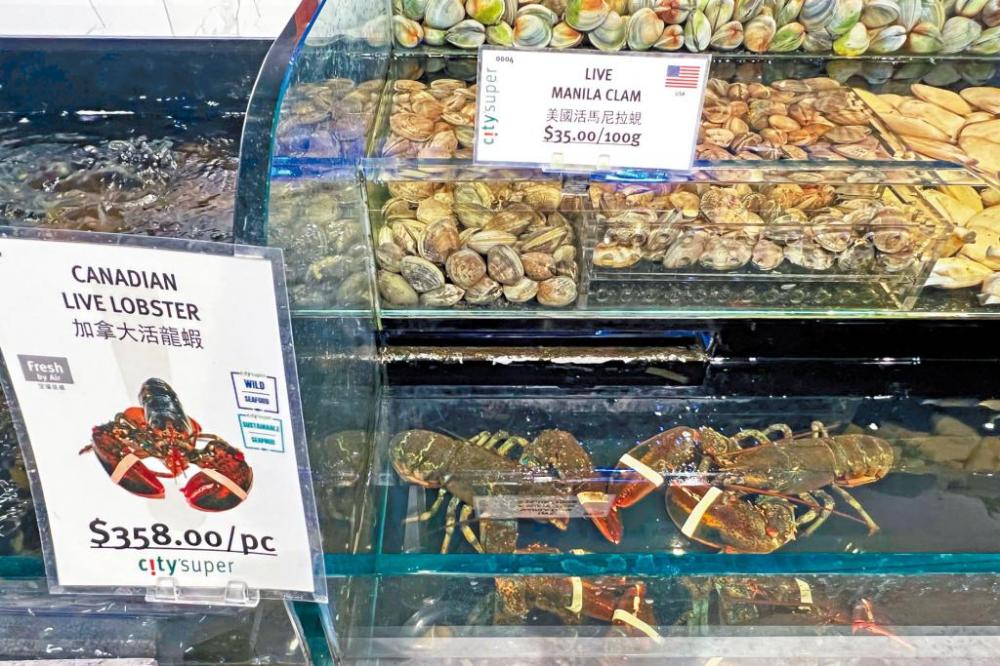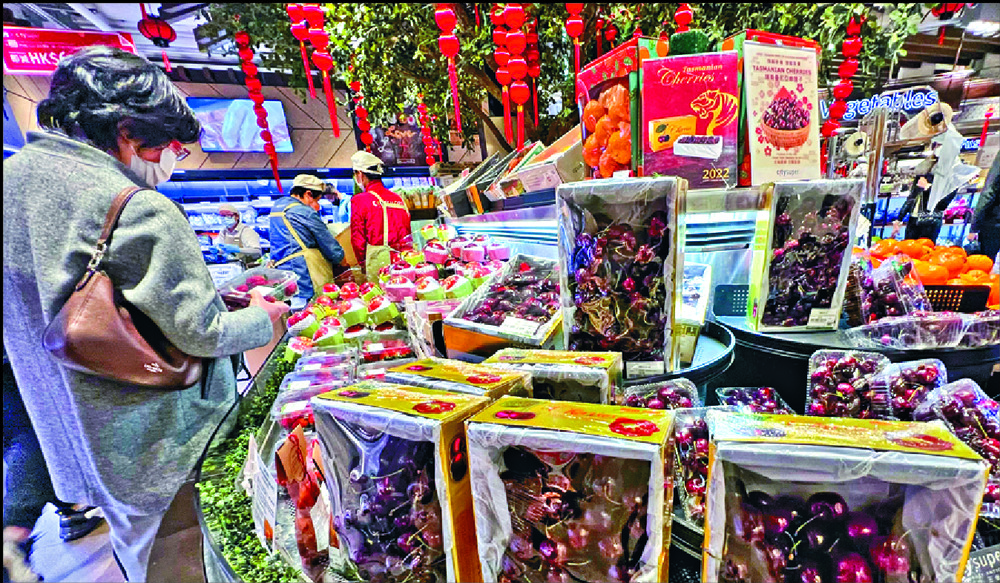Fruit, seafood and high-end online shopping goods will be pricier as shipping costs are expected to go up by 30 to 40 percent amid tightened rules on cargo flight operations, a logistics veteran says.
But low-end food such as vegetables and meat mainly coming from the mainland and supply chains are stable as they are transported to Hong Kong by trucks, said Gary Lau Ho-yin, chairman of Hong Kong Association of Freight Forwarding and Logistics.
More expensive foods such as fruits and seafood, which have shorter shelf life and remain fresh, are mostly flown into Hong Kong by cargo flights.
“So, unavoidably, these kinds of food would be affected by reduced air cargo. The logistics industry expects to see an increase of 30 to 40 percent in costs, and such increased costs will be passed on to consumers,” Lau said on a radio program yesterday.
He expected the shortage of long-haul air cargo would be serious as Cathay Pacific earlier announced it would cut cargo capacity from Europe, the US, Australia and New Zealand in the first quarter of this year.
Lau also said the industry has looked for solutions such as using other airlines’ cargo flights but it’s not easy as they cannot increase their flights due to the limit on air space, while their crew members also have to comply with the quarantine arrangement.
His comments came after Chief Executive Carrie Lam Cheng Yuet-ngor said in the Legislative Council on Wednesday that rising prices and products going out of stock will be felt soon by people in Hong Kong amid reduced cargo capacity following tightened Covid-19 quarantine requirements on aircrews.
Sunny Ho Lap-kee, executive director of the Hong Kong Shippers’ Council, said the reduced air cargo would affect products like medicine, computer chips and expensive food ingredients.
But he also agreed that many ingredients and necessities can be imported from the mainland so the impact on people’s livelihood in general would be small.
Hong Kong Logistics Association president Elsa Yuen May-yee said yesterday that hotels have stopped getting some expensive ingredients.
Many factors could affect sea freight but land freight service from the mainland is stable.
Yuen hoped the logistics operation could resume to 70 to 80 percent of normal after the Lunar New Year holiday, otherwise many merchants may lose a few months of business and their cash flow would be affected.
Meanwhile, the president of the Federation of Restaurants and Related Trades, Simon Wong Ka-wo, said restaurants have stocked up a lot of ingredients in preparation for the Lunar New Year holiday, but the dine-in ban after 6pm has hit their business, forcing them to sell fresh seafood and other meat at lower prices.
He hoped the government can relax the dine-in ban to 8pm during the holiday, and allow Type D restaurants to have eight people at a table instead of six now.
The managing director of On Kee Dry Seafood, Richard Poon Kuen-fai, said many restaurants have canceled orders due to the dine-in ban as people would only order dry seafood like fish maw for dinner.
Poon also said wholesalers have stocked up products worth at least HK$1 billion, including dry seafood and frozen food.




